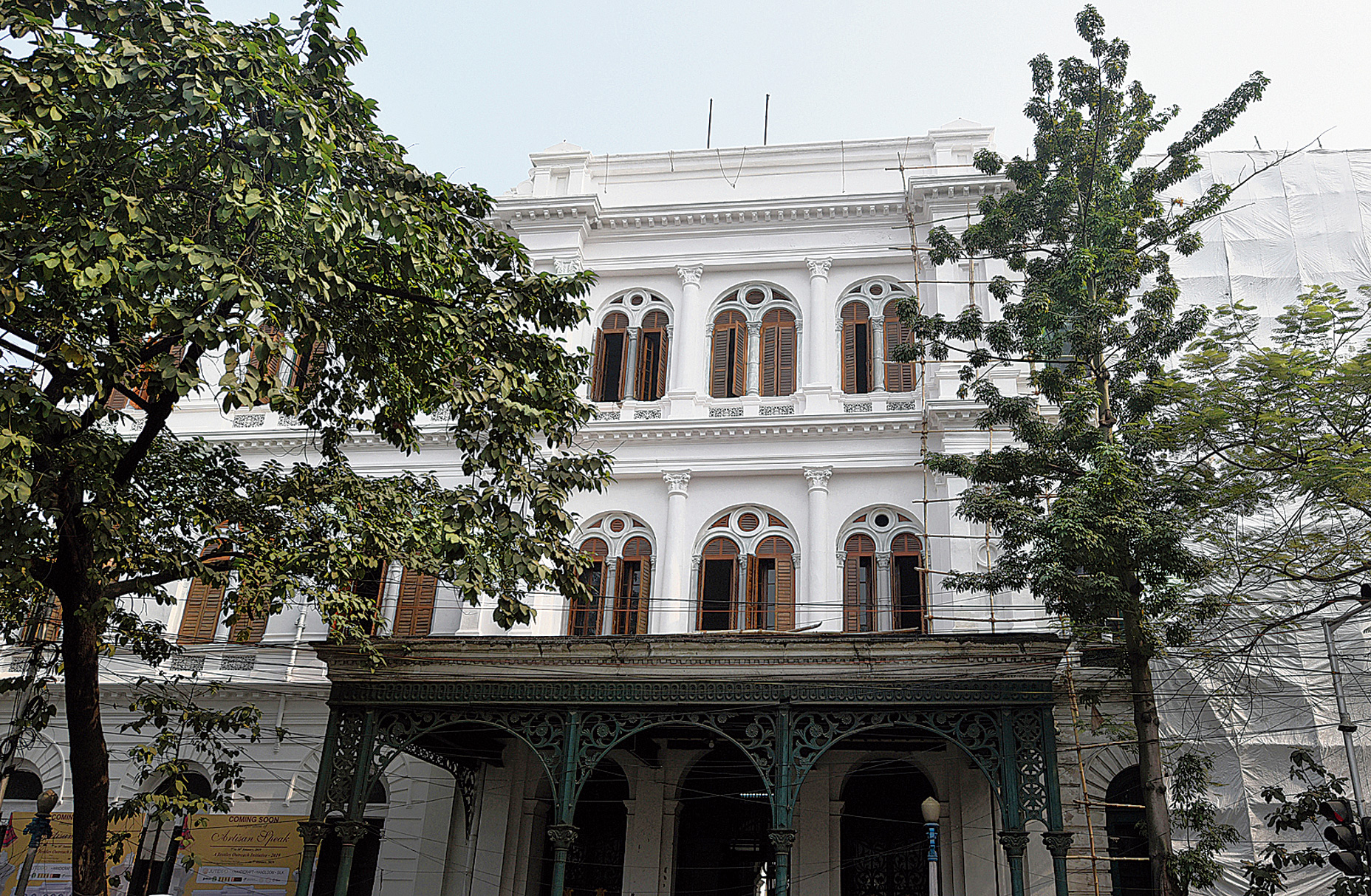Not every day do I get a chance to travel in my own car. It is a small car, one of the smallest running on the roads these days. Instead of racing, it seems to dart. Its front, like every other car’s, looks like a face, only this one seems to have a tight angry grin pasted on it, like a Spitz’s. Its inside, however, has immense potential.
On a wet, muggy Calcutta afternoon, it is my refuge from the rain, the dirty water, and the world. The world that assails me continuously with its demands. (I am even expected to know the exact date on which the toilet cleaner is going to run out.)
So on the afternoon that I am using my car to go to work, I step into it, slam the door shut, roll up the window and ask the driver of my car (I don’t drive; one more luxury) to switch on the air conditioner. Then, I issue the final instruction, in what I hope in an aristocratic tone, echoing the other masterful command promising fantasy and abandon in the Bengali language: Chalao pansi Belgharia. Meaning: Let the boat take me to Belgharia. The Ganges still flows by Belgharia, which presumably was once a beautiful place. Only, what I say is: Switch on Vividh Bharati. I don’t know what exactly happened in Belgharia, but what follows for me is absolute bliss for almost an hour.
At that time of the afternoon, usually old Hindi film songs are played. The programme is conducted by a woman, whose voice, with its distinct timbre, is dignified and kind, and seems to come from another world altogether. It is an anachronism in the age of FM, of which it seems to be unaware.
But it is not only the voice. It is the Hindi too. The Hindi is pure, clearly enunciated and bears no trace of English. This is radio time. Then the music begins to flow. Today is Mohammad Rafi day. I give in as he starts with Teri galiyon mein na rakhen- ge kadam…
I can never decide who is better at singing about love — Rafi or Kishore Kumar. Kishore is Kishore, but Rafi is so good as the man who has been refused love, his voice soft with tears and tenderness, and falling like the rain — not like the rain outside, a rain that is relentless and hostile, that leads to water-logging and electrocution, a rain from which I have been able to protect myself. I am afloat like a bubble in this horrible rain.
Rafi’s voice is full of appeal. Nothing is as pure as lost love. But parted lovers waiting to meet each other are almost as good. Rafi, with Lata Mangeshkar this time, starts singing for me, Yeh dil tum bin lagta nahin toh hum kya kare… Oh, the missing! The word viraha, though, cannot be translated into English.
I remember a very hot Dharmendra and also a very hot Tanuja singing this song to each other. I don’t know who is hotter, but you could cut yourself on Dharmendra’s cheekbones then. I drown in their longing. With them I go where I don’t ever go: the mountain slopes of Kashmir. After all, that’s where beauty happened.
Rafi and Lata begin to sing Athara baras ki tu hone ko aayi re… This is different. This is from Suhaag, a late 1970s film with Amitabh Bachchan and Rekha. Does anyone even remember what happens in the course of this song between the two? I can’t quite put my finger on it, but every time I watch them I burn. Besides, Rekha’s is the sexiest backless-choli back in Indian cinema; Madhuri Dixit is a mere pretender and a latecomer.
All songs by the same Rafi. Inside my little car, I rock and roll. It is my disco. It is my little theatre. It is my pleasure house. I am the master-mistress of this place. No one can touch me here.
I could have dismissed my entire trip, my car or even myself as nostalgia, or even a figment of my imagination — and Vividh Bharati is free of advertisements to boot — had it not been for the woman’s voice again. She reads out names of people who have requested songs: they include Fauji Bhais, and people from Jhumri Telaiya. These still exist. Therefore, I must also.
But all good things must come to an end. Vividh Bharati, after all, is a government channel, and offering a sharp contrast to the previous programme, the Prime Minister begins to speak, about the importance of yoga.
Having been soothed by Rafi’s voice by then, I promptly fall asleep.












